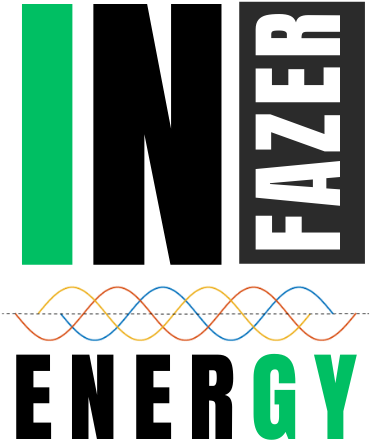In today’s rapidly advancing technological landscape, businesses are constantly seeking innovative ways to reduce operational costs and achieve sustainability goals. One of the most effective ways to do so is by improving energy efficiency. The Internet of Things (IoT) has emerged as a game-changing technology in modern energy management systems, enabling industries and commercial sectors to monitor, analyze, and optimize energy consumption like never before.
What is IoT in Energy Management?
IoT refers to the network of interconnected devices that communicate with each other to exchange data in real time. When applied to energy management, IoT allows businesses to monitor energy usage at a granular level. From smart meters to advanced sensors and connected devices, IoT-powered systems offer unprecedented visibility into how energy is consumed across operations.
These systems help companies track energy patterns, predict usage trends, and identify inefficiencies, paving the way for smarter energy consumption strategies.
Benefits of IoT in Energy Management Systems
1. Real-Time Energy Monitoring
IoT devices continuously collect and transmit energy data, providing real-time insights into consumption patterns. This allows businesses to identify peak usage times, inefficiencies, or malfunctioning equipment immediately, enabling swift corrective actions.
2. Improved Operational Efficiency
With IoT, industries can integrate energy data with operational processes. This integration helps optimize production schedules, reduce energy waste, and align operations with energy-efficient practices.
3. Cost Savings
By identifying inefficiencies and optimizing energy use, businesses can significantly lower their energy bills. IoT systems also help predict maintenance needs, reducing unplanned downtime and associated costs.
4. Sustainability and Compliance
IoT-based energy management systems help businesses meet sustainability targets by tracking carbon footprints and ensuring compliance with energy regulations. This enhances corporate social responsibility (CSR) efforts and brand reputation.
5. Predictive Maintenance
IoT-enabled sensors monitor the performance of energy systems and devices. Predictive analytics use this data to forecast potential equipment failures, allowing for maintenance before a problem arises. This reduces energy waste and extends equipment lifespan.
Key Components of IoT in Energy Management
1. Smart Meters
Smart meters collect detailed energy usage data, offering insights into consumption patterns at different times of the day. These devices are essential for tracking energy performance and optimizing usage.
2. Energy Sensors
Connected sensors measure various parameters such as temperature, humidity, and machine performance. They provide the data needed to identify energy-saving opportunities.
3. Cloud-Based Platforms
Cloud technology allows energy data to be stored and analyzed remotely. Businesses can access insights via user-friendly dashboards, enabling informed decision-making.
4. IoT Gateways
IoT gateways act as intermediaries between devices and cloud platforms, ensuring secure and efficient data transmission.
Applications of IoT in Industrial and Commercial Sectors
Industrial Sector
- Manufacturing Plants: IoT monitors energy usage in heavy machinery and optimizes workflows to reduce energy consumption without compromising productivity.
- Data Centers: IoT helps manage cooling systems and power distribution, ensuring efficient energy usage in data centers.
Commercial Sector
- Office Buildings: Smart lighting and HVAC systems adjust based on occupancy and weather conditions, minimizing energy waste.
- Retail Outlets: IoT tracks energy usage across multiple locations, allowing centralized control of energy consumption.
Challenges in Implementing IoT for Energy Management
Despite its numerous benefits, IoT implementation can pose challenges, such as:
- High Initial Costs: Installing IoT infrastructure may require a significant upfront investment.
- Data Security Concerns: With increased connectivity comes the risk of cyberattacks. Robust cybersecurity measures are essential.
- Integration Issues: Integrating IoT with existing systems can be complex, requiring expertise and planning.
The Future of IoT in Energy Management
As IoT technology continues to evolve, its impact on energy management will grow exponentially. Advanced analytics, artificial intelligence, and machine learning will further enhance the capabilities of IoT systems. In the future, businesses can expect even more precise energy forecasts, automated energy-saving decisions, and seamless integration with renewable energy sources.
Conclusion
The IoT revolution has transformed how industries and commercial sectors approach energy management. By offering real-time insights, predictive analytics, and automation, IoT empowers businesses to optimize energy usage, reduce costs, and achieve sustainability goals. Investing in IoT-enabled energy management systems is no longer a luxury but a necessity for forward-thinking organizations.
Are you ready to embrace IoT and take your energy management to the next level? Reach out to us today and discover how our cutting-edge solutions can transform your business.

